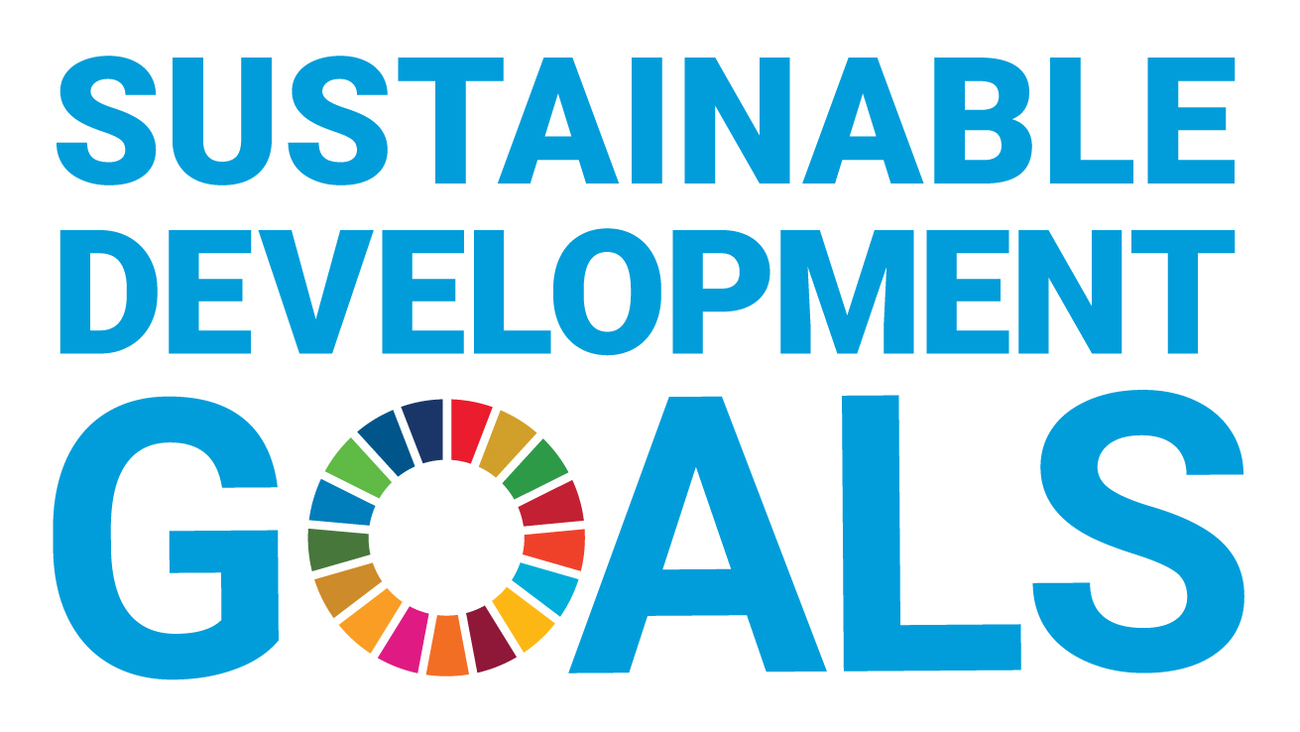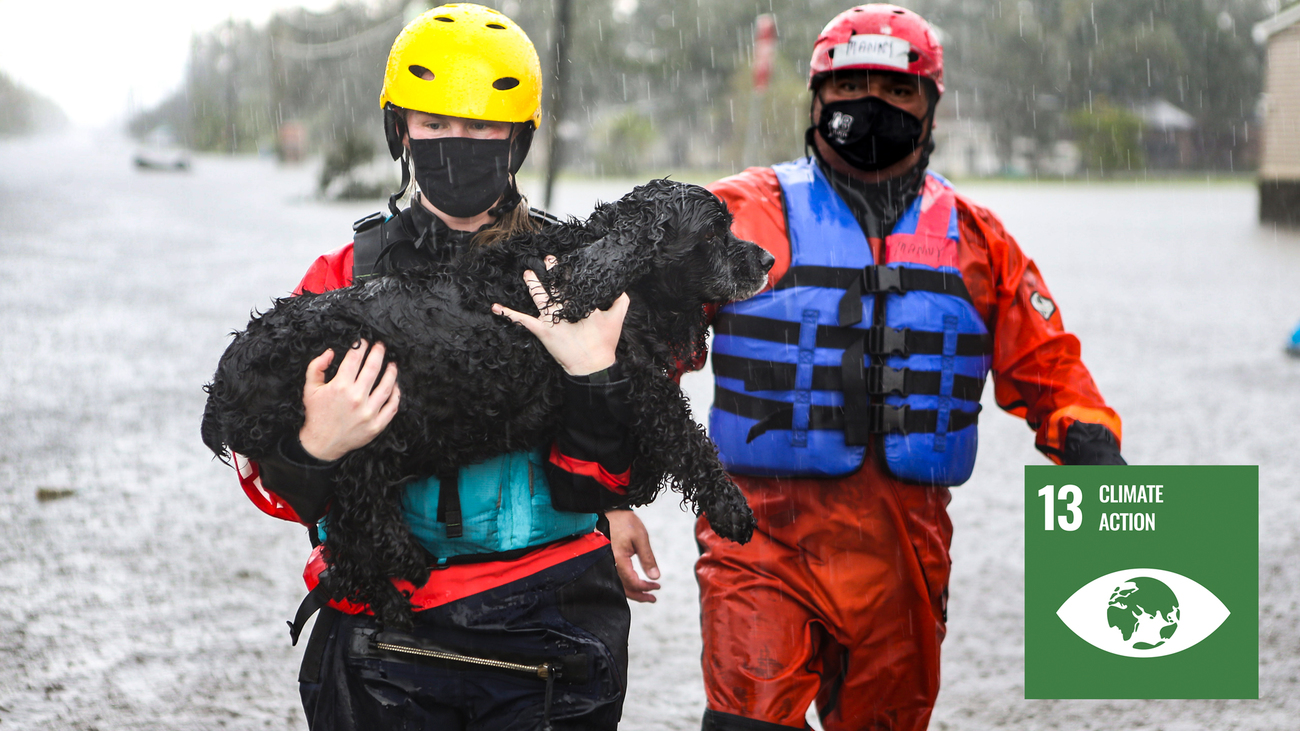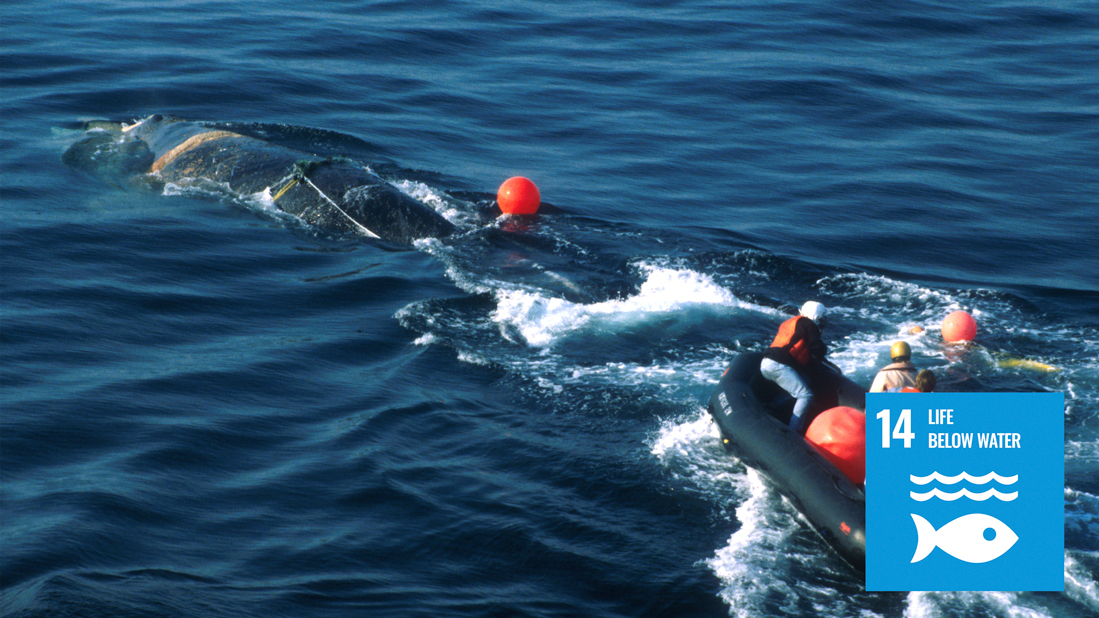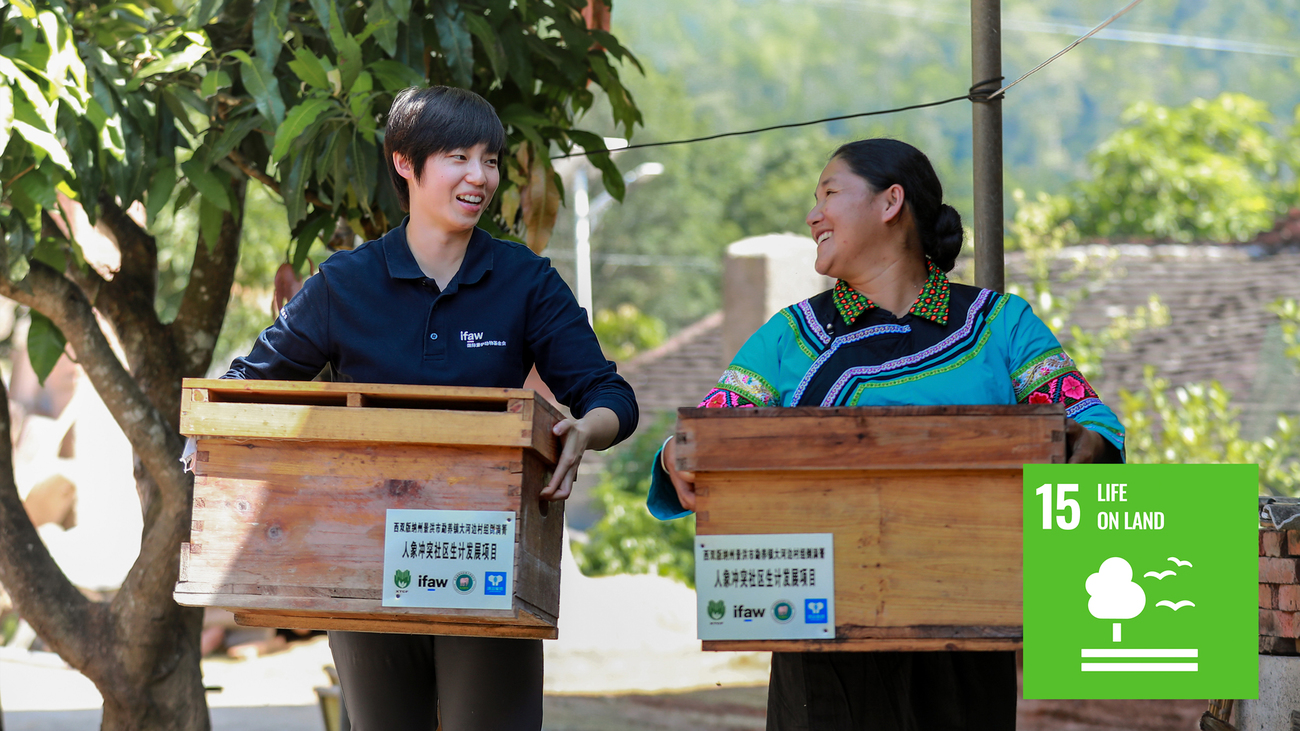protecting animals & helping people by supporting the SDGs
protecting animals & helping people by supporting the SDGs
The Sustainable Development Goals (SDGs) are an urgent call for action by all countries that are part of the United Nations. Built upon the progress made by the Millenium Development Goals, they outline the international priorities to achieve sustainable human development by 2030 and incorporate environmental considerations towards preserving our oceans and landscapes, and the animals that call them home.

IFAW supports the SDGs and believes in the value of animal welfare and habitat conservation in creating a more just and sustainable future for all. Healthy wildlife populations and ecosystems contribute significantly to the achievement of these goals as they are important avenues to improve both human and animal lives. We raise awareness of the connections between animal welfare, conservation, and human development to inspire greater collaboration to improve conditions for all species and the planet.
biosphere, society, economy
IFAW's work in rescue and conservation contributes primarily toward the goals within the biosphere theme, but within each of our programs are strategies that align with the societal and economic SDGs. Saving and protecting animals and their habitats are often key strategies in helping human societies and economies as well. To learn more about how our work contributes toward the achievement of the SDGs, explore some of our projects under select key goals below.

climate action
Climate change is causing social, economic, and environmental impacts and less developed countries are frequently more vulnerable. IFAW works to address climate change by integrating nature conservation into climate change mitigation and adaption policies. IFAW's Disaster Response & Risk Reduction team works with communities worldwide to develop national and local disaster plans for people and animals to enable communities to effectively prepare for and respond to natural disasters.
You can read more here:

life below water
As humans, we need to take care to conserve and sustainably use resources from oceans, seas, and coastal areas. Marine resources are critical for many communities that rely on them for food security and livelihoods, and for wildlife who call these areas home. IFAW's North Atlantic right whale project seeks to protect the critically endangered right whale, while also working with lobster fishing communities to utilize ropeless fishing gear that prevents whale entanglements and allows fishing communities to continue pursuing marine livelihoods sustainably.

life on land
Land degradation and desertification can be combatted by restoring terrestrial ecosystems and biodiversity. Wildlife and their habitats support both healthy ecosystems and our communities by contributing to water quality, food security, and natural disaster risk reduction.
IFAW works across many countries to protect species from poaching and habitats from degradation. By initiating beekeeping as an alternative livelihood in China, community members have become advocates for elephant protection, promising not to destroy the local forest or capture wild animals. In South America, we are combatting illegal wildlife trade to protect jaguars, so they can continue to play their vital role in maintaining a healthy ecosystem. In Kenya, Tanzania, Malawi, Zambia and Zimbabwe, through our Room to Roam initiative, we safeguard core wildlife habitats in order to create safe corridors for elephants and other wildlife to migrate or move freely across park boundaries and international borders.
Find out more about our projects protecting wildlife and habitats around the world.
Some additional resources
- supporting the SDGs for people and animals
- animals are key to human development
- thriving together: achieving the sustainable development goals and increasing well-being for animals and people
- carbon footprint report 2021
- to help animals, sometimes you need to look at humans, and vice versa
- beyond COVID-19: preserving human health by reinventing our relationship with wildlife
- we need animals to survive - but first, we need to include them
- coexistence: living harmoniously with wildlife in a human-dominated world
- community engagement: putting communities at the heart of the solution
- how people can coexist with animals
- measuring what matters: true well-being for animals and people